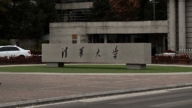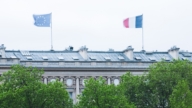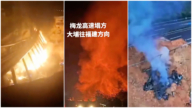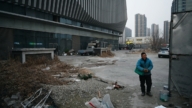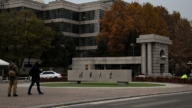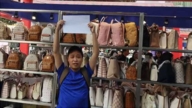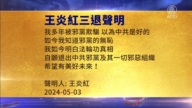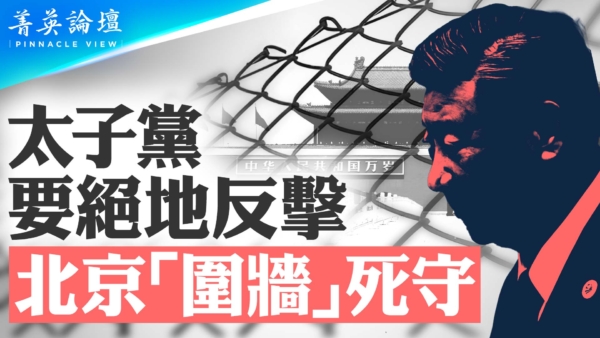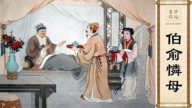【新唐人2011年9月5日讯】世界银行行长最近指出,中国经济发展前景堪忧。与此同时,俄罗斯主流社会再次强调了对中共政治制度的摒弃,这使得长期以来备受诟病的中共政治制度与经济制度危机,再度成为焦点。一批重量级的国际政治与经济专家从不同角度对此进行了分析阐述。请看报导。
克里姆林宫的政治智囊,著名政治学者尼科诺夫,9月2号在莫斯科举行的一场新闻发布会上表示,很明显,俄罗斯无法接受中共政治模式,俄罗斯更不可能再倒退回苏联时代。
俄罗斯的其他政治势力对中共政治制度抱持否定态度。俄罗斯著名政论家和记者舍甫琴科早些时候还警告,中国可能重复苏联解体命运。
中国政治学者秦永敏:“从历史的角度上看,本来中国这个模式是从斯大林模式蜕变过来的,也就是一党独裁加上这些伪意识形态。那就是经济上可以与世界接轨,搞资本主义,政治上还是要坚持一党独裁,坚持把权力掌握在自己手上,也就是搞专制政治。”
外界一直抨击,中共实行列宁、斯大林模式的以党治国,专制独裁统治给中国带来了贫富悬殊、通货膨胀、官员腐败等种种政治与经济危机。美国《中国经济》季刊的主编斯塔德维尔在他的《中国梦》一书中,把中国经济比喻为“一座建立在沙滩上的大厦”,随时有崩溃的危险。
最近出访中国的世界银行(World Bank)行长佐力克(Robert Zoellick)认为,目前中国经济发展模式亟需改革。他说:如果没有根本改变,中国会使全世界及本身经济问题恶化和更不平衡,食物及天然资源价格更高、会呈现更多的环境损害、也更难应付日益老化的人口及过度仰赖海外市场。
中国著名经济学家茅于轼进一步分析中国经济政策方面的弊端,如中共政府和金融系统的债务问题,政府操控出口汇率,以及房地产泡沫背后的原因。
茅于轼:“房地产泡沫的背后,是几个原因,最主要原因是投资管道不畅,收入分配不公,土地供给垄断,这些问题不解决,房地产问题好不了的。”
茅于轼8月29号在他的博客上推荐宋怀常的著书《中国人的思维危机》,这本书指出,中共领导人在国家政策方针及制度上,思辨力缺乏,判断错误,政策失误,给国家造成了不可挽回的损失,给人民带来了深重的痛苦甚至是灾难。
茅于轼认为,只有保护了人权,市场经济才能得到发展。
茅于轼:“中国现在这个市场经济也是不完善的,他的原因归根结底在政治上,市场经济要求一个有人权的,也就是需要有一个人权的保护。中国的进一步改革,关键也在人权上,能不能没有特权,因为人权的敌人就是特权,要有人权就必须消灭特权,所以中国经济的前景就看我们能不能消灭特权,保障人权。”
政治学者秦永敏认为,中共的体制已经无以为继。
中国政治学者秦永敏:“中共这个整个结构,基本上是权力结构,是和他们的金钱的结构一致的,那么越到上层,掌握的财富越多,相反呢,工农大众,当年帮他们暴力夺取了政权,现在从法律上,从制度上踩到了最底下,这种制度,当局当年煽动工农帮他们夺权,那么今天他还想用这种制度来维持(统治),这可能吗?这肯定是不可能的。”
秦永敏还表示,中国这种模式其实是一种专制主义的回光返照,不管他怎么挣扎,不管他拖延多长时间,归根结底还是必须回归世界文明主流。
新唐人记者常春、许旻、王明宇采访报导。
Chinese Economic System in Danger of Collapse
Recently, the World Bank president pointed out that China’s
economic development prospects are grim.
Russia’s mainstream society once again stressed the rejection
of the Chinese Communist Party (CCP)’s political system.
The CCP’s political and economic system crisis has been heavily
criticized for a long time, and is once again in the limelight.
A group of heavyweight international political and economic
experts analyzed it from different angles.
On September 2, Kremlin’s political think-tank, the famous
political scholar Vyacheslav Nikonov expressed
at a news conference in Moscow that Russia obviously
does not accept the CCP’s political model,
and much less will Russia go back to the Soviet Union era.
Russia’s other political forces also hold a negative attitude
towards CCP’s political system.
Russia’s leading political commentator and correspondent
Shevchenko had earlier warned that
China might repeat the fate of the Soviet Union.
Chinese political scholar Qing Yongmin:
“from a historical point of view,
the Chinese model is transformed from Stalinist model
which is a one-party dictatorship with these pseudo-ideologies.
That is, be in line with world economics y choosing Capitalism,
but adhere to one-party dictatorship in politics,
insisting on keeping authority in their own hands.
It is authoritarian politics. ”
The CCP has always been criticized for following Leninist and
Stalinist model and ruling the country with one party,
because the CCP’s authoritarian dictatorship brings to China
wealth gap, inflation, official corruption
and other kinds of political and economic crisis.
Chief Editor of American China Economic Quarterly Studwell
described the Chinese economy in his book “The China Dream”
as a mansion built on sand,
which is on the edge of collapse at any time.
World Bank president Robert Zoellick, who visited China
recently, thinks that the Chinese economy development model
needs an urgent revolution.
He said if nothing is changed fundamentally,
China will deteriorate and the whole world and
its economic problems will become even more unbalanced.
The price for food and natural resources will be higher,
and the environment will be worse.
It will be harder to cope with the growing aging population
and excessive reliance on overseas markets.
Well-known Chinese economist Mao Yushi analyzed further
the shortcomings of the Chinese economic policies,
such as the debt problem of the CCP,
the government and financial system,
the government controlled export exchange rate,
and the reasons behind the real estate bubble.
Mao: “There are several reasons behind the real estate bubble.
The main reasons are poor investment channels,
unequal distribution of income,
and the monopoly of the land supply.
If these problems are not resolved,
there is no way to solve the real estate problem. ”
On August 29, Mao recommended Song Huaichang’s book
“Chinese People’s Thinking Crisis” on his blog.
This book points out that CCP leaders lack speculative ability
in national policy and system.
Their errors of policy guidelines have inflicted irreparable
damage to the country, and have brought miserable suffering
and even disasters to the people.
Mao believes the market economy will develop
only if human rights are protected.
Mao: “The market economy in China is incomplete,
and that is because of political problems after all.
The market economy requires human rights.
That is, a protection for human rights.
The key point of China’s next step of reform
is also human rights;
whether we can get rid of privileges,
as privileges are enemy of human rights.
If we want human rights, we have to eradicate privileges.
So the future of Chinese economy depends on whether
we can eradicate privileges and protect human rights. “
Political scholar Qing Yongmin thinks that
the CCP’s system is unsustainable.
Qing: “The structure of the CCP is basically the structure
of power, which is in line with their money structure.
The higher level you are, the more money you get.
On the other side, ordinary people who helped them gain
the power violently, are at the lowest level.
The authorities use this system to incite people to
help them gain the power.
Now they want to use it to maintain their regime.
Is that possible? Definitely not.”
Qing expressed that the Chinese model is
authoritarianism’s death wish.
No matter how it struggles, no matter how long it lasts,
finally, it will return to the mainstream of world civilization.
NTD reporters Chang Chun, Xu Min and Wang Mingyu


